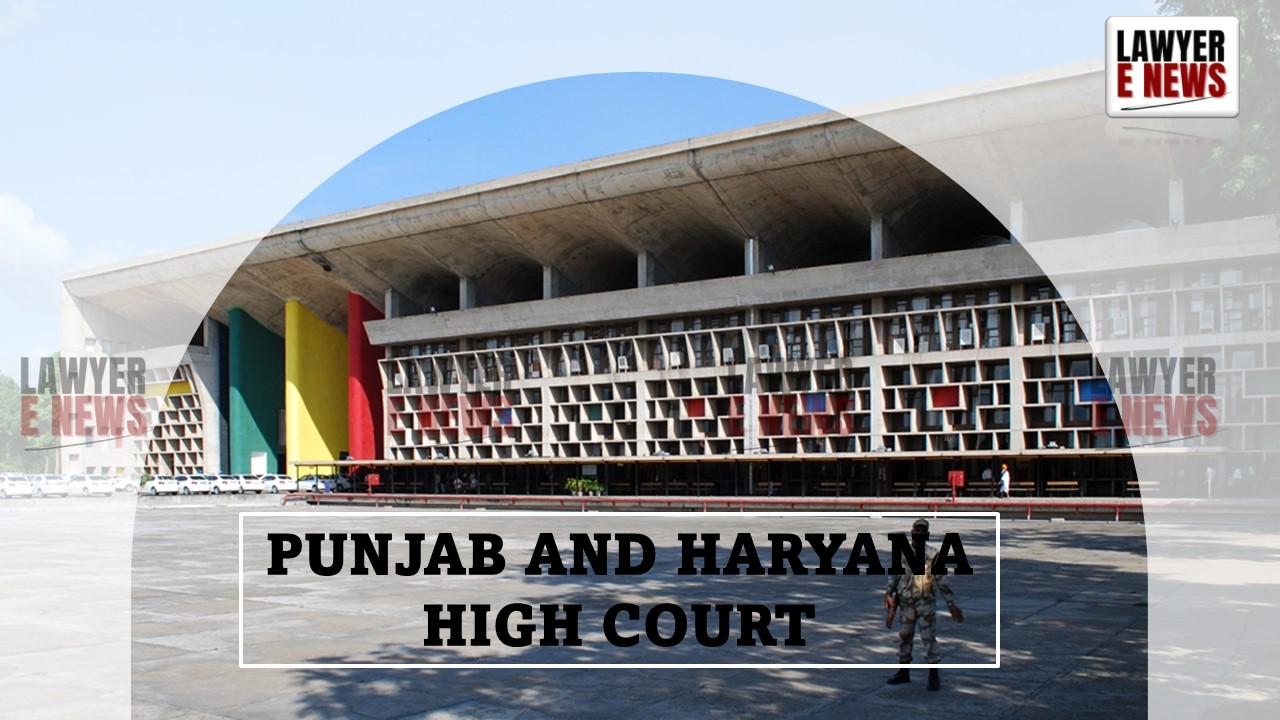-
by Admin
15 February 2026 5:35 AM



Permanent Lok Adalat’s Role is Limited to Summary Proceedings, Not for Complex Legal Adjudications, Punjab and Haryana High Court in Santosh Gupta & Another v. Permanent Lok Adalat & Others upheld the decision of the Permanent Lok Adalat (Public Utility Services), U.T. Chandigarh, which dismissed the petitioners' application for relief in an insurance dispute. The court ruled that the Lok Adalat correctly refused to adjudicate the matter, as it involved complex legal and factual issues beyond its summary jurisdiction.
The dispute arose when the petitioners, Santosh Gupta and her son Mitrabh Gupta, took a home loan from Union Bank of India, which included a life insurance policy from India First Life Insurance to cover the loan in case of Mitrabh Gupta's death. After Mitrabh passed away in May 2022, the insurance claim was denied, and the petitioners learned that the insurance policy had been rejected due to the non-submission of medical reports. The petitioners claimed they were never informed about this rejection or the refund of the insurance premium.
The petitioners approached the Permanent Lok Adalat (Public Utility Services), seeking relief. However, the Lok Adalat dismissed the case, citing that the issues at hand required voluminous evidence and complex legal adjudication, which fell outside its summary jurisdiction.
Jurisdiction of Permanent Lok Adalat: The court emphasized that the Permanent Lok Adalat is designed to handle disputes through conciliation and can only adjudicate simple cases. Complex issues, such as determining insurance liability and contested facts surrounding the rejection of a policy, must be resolved in a regular court.
Complex Legal and Factual Questions: The court observed that the dispute involved intricate issues, including the insurer’s duty of communication, the return of the premium, and the non-existence of the insurance contract due to the rejection of the policy. These required a full-fledged trial with cross-examination of witnesses and detailed evidence, beyond the scope of Lok Adalat’s summary proceedings.
Dismissal of Writ Petition: The High Court rejected the petitioners' plea to direct the Lok Adalat to take up the matter, affirming that its summary jurisdiction was rightly invoked. The petitioners were advised to approach a regular civil court for resolving the matter.
Justice Vinod S. Bhardwaj upheld the Permanent Lok Adalat’s decisions, affirming that it was correct in declining to adjudicate the matter due to the complexity of the legal and factual issues. The petitioners' writ petition was dismissed, and they were directed to pursue their remedies in a regular court.
This judgment underscores the limited jurisdiction of Permanent Lok Adalats, reaffirming that they are not suitable forums for resolving complex disputes requiring detailed legal and factual inquiry. Individuals must approach regular courts for such matters.
Date of Decision: September 24, 2024
Santosh Gupta & Another v. Permanent Lok Adalat & Others.
